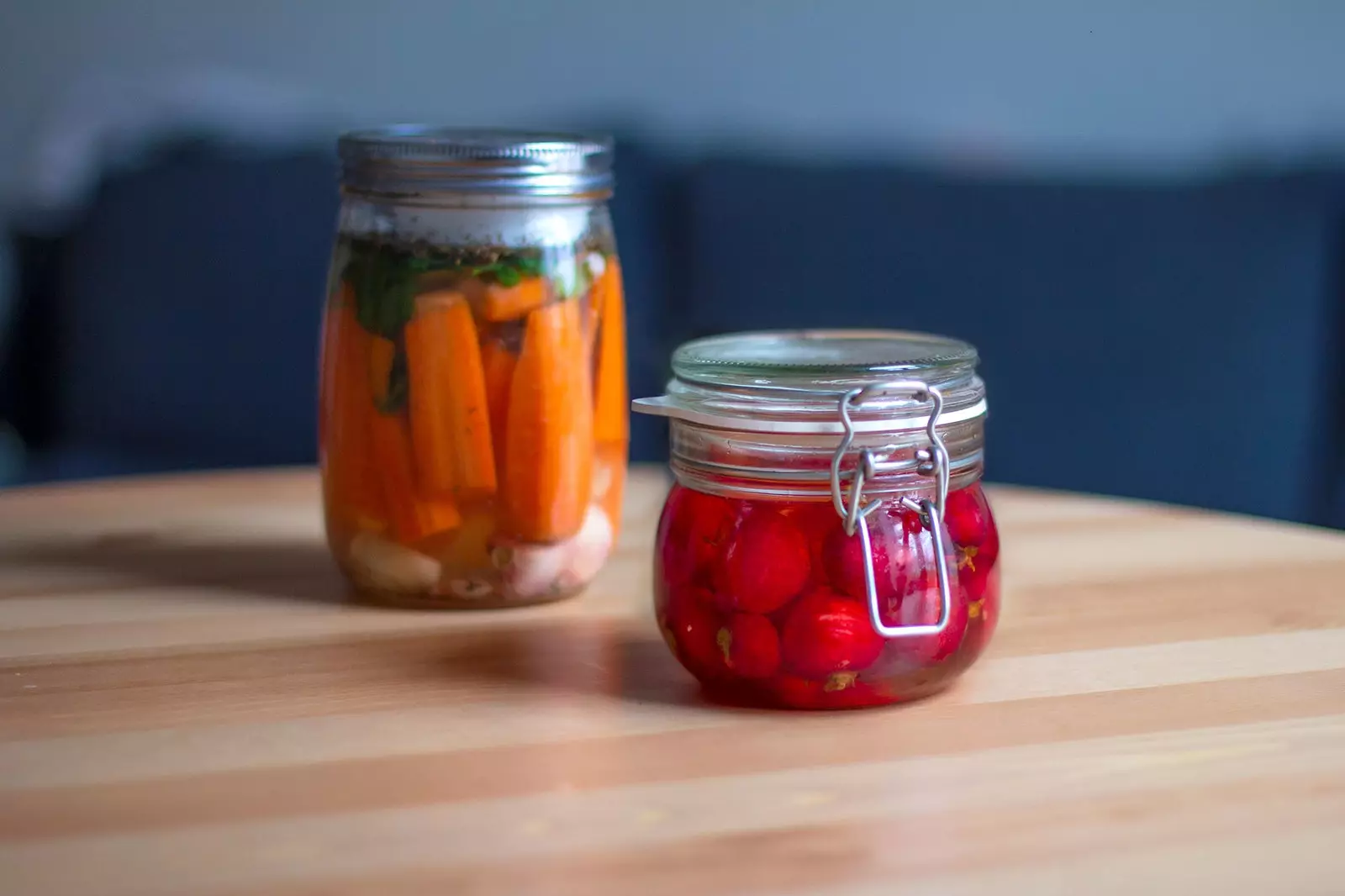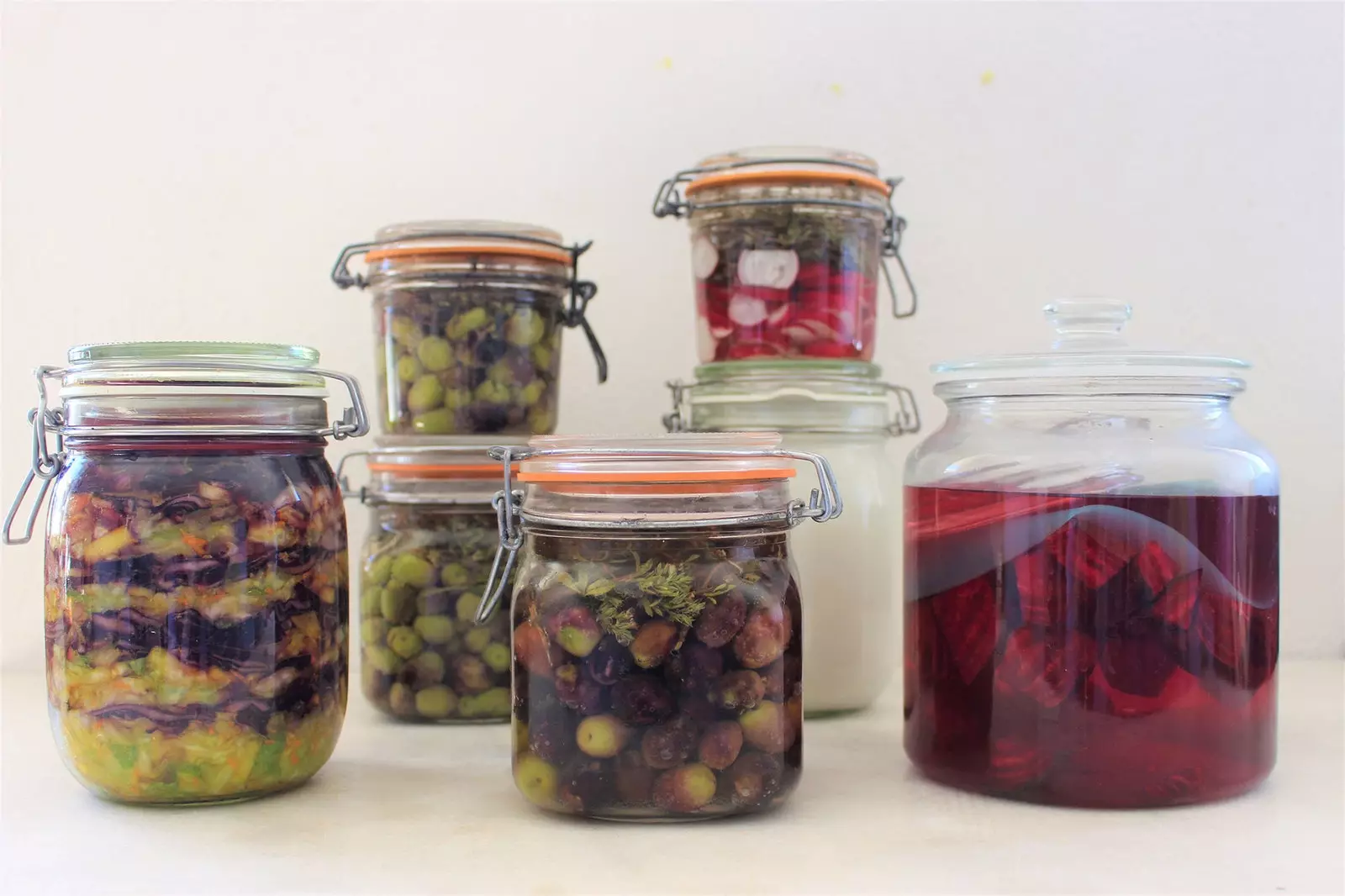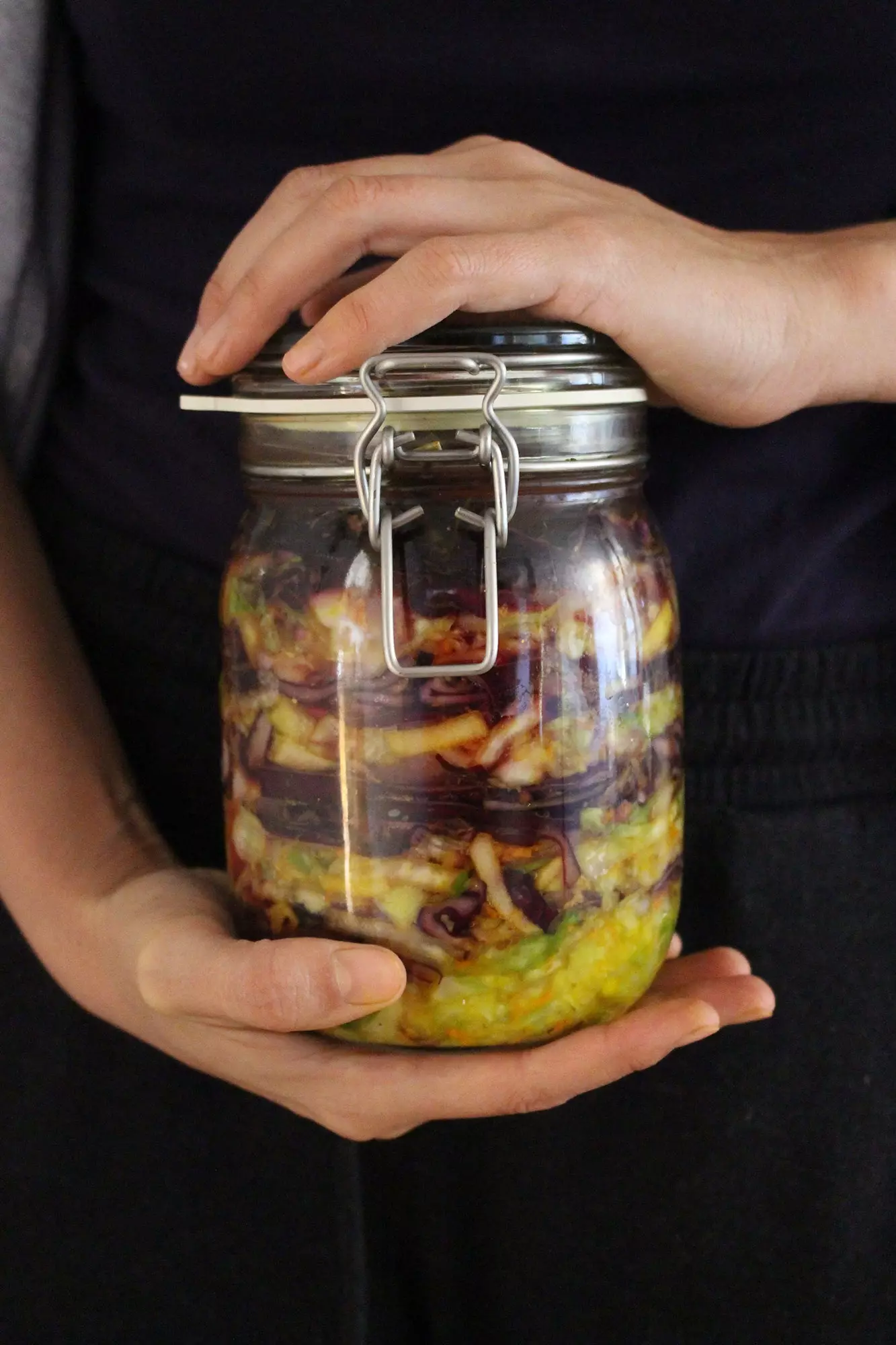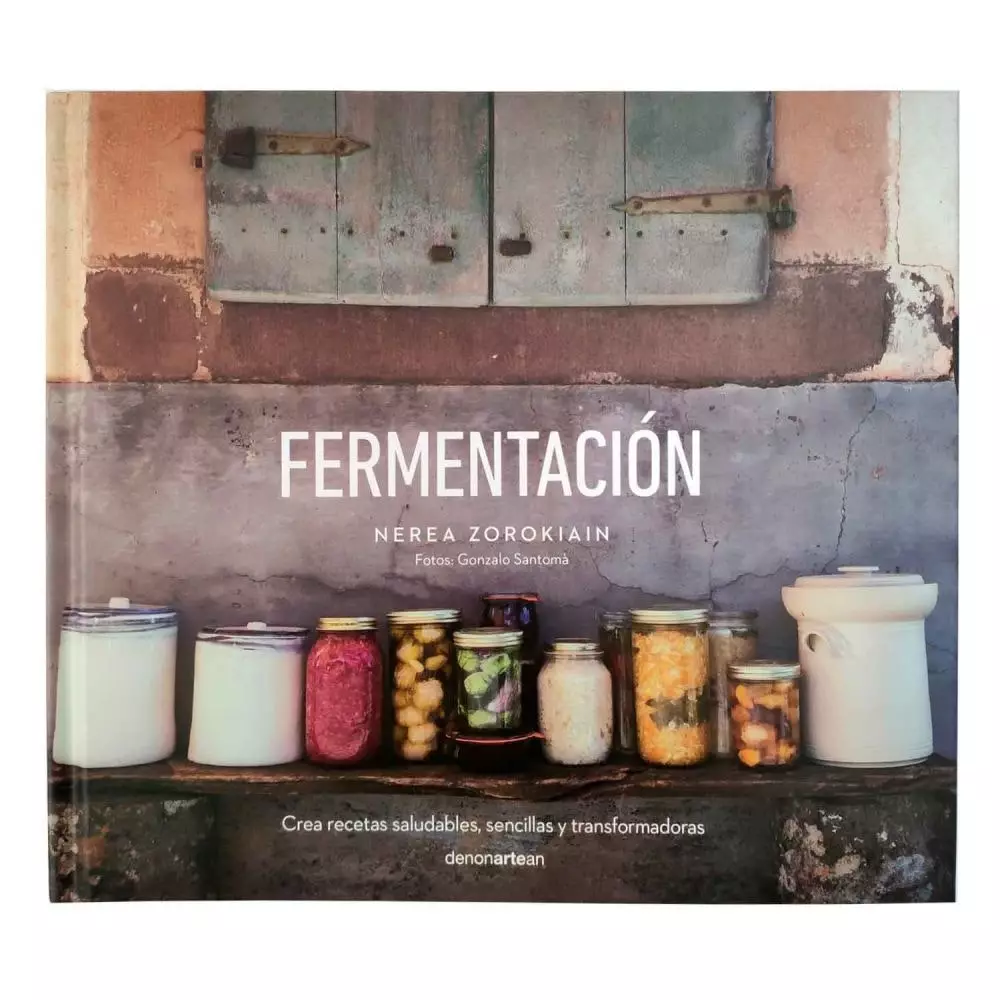
It's time to ferment at home: the bacteria party
You are not as alone as you think . Maybe the state of alarm I have caged you in a fifty square meter apartment - meter above, meter below - with no skies to look at. Nevertheless, you just have to open the fridge -yes, again- to realize that you have company. That spring onion that languishes at the bottom of the vegetable drawer it's not just a spring onion languishing in a lockdown similar to yours. Thousands of bacteria roam freely in it which, unlike the virus that threatens us, they are there to comfort you, even a little.
They have invited themselves to the party . They're like the horde of friends of friends who show up at that beardless American's house when his parents go away for the weekend. He panics when he opens the door and finds himself alone in front of her. to the pubescent pack . He has a feeling that everything is going to blow up. But miraculously and despite the mishaps, it ends up being the night of his life.
Something similar happens with the fermentation . Mistakes are made, lots of mistakes, but if you manage the guests without slowing down the party, the process can be exhilarating. “And almost magical” says the cook Robert Ruiz from his Barcelona fermented laboratory Kami de Deus , “it is about science, but it does not stop hiding a certain romanticism”.
Video conferences open windows but hijack some of the senses we most need to feed: touch, smell, taste . If you accept the invitation of that spring onion -or whatever it is that suffers from the blues in your fridge- at the bacteria party you will find a lot to hold on to during this quarantine.
THE PERFECT HOST
Fermentation is a controlled process of putrefaction in which microorganisms are inoculated into a food -some arise spontaneously- so that it is preserved for a long period of time.

Time to... FERMENT!
It could be summed up as one: we feed certain bacteria ; two: these thank us producing substances that modify the composition of food ; three: they make them uninhabitable for those other 'bugs' that cause their decomposition . "It's about creating the right environment for bacteria and fungi to feel comfortable and reproduce," explains the founder of Kami de Deus, which during the state of alarm offers free video tutorials about fermentation on its website.
How do we heat the environment? To ferment vegetables, for example, we submerge them in salt water (2% to 5% of the weight of vegetables and water ), which modifies its environmental conditions. The surviving bacteria feed sugar from vegetables and produce lactic acid and carbon dioxide They help preserve vegetables. The opportunity to become the perfect hosts even behind closed doors.
WHAT AWAKENS THE HUNGER
However, where is the line that differentiates food that ferments from food that putrefies? Not even Sandor Katz, author of one of the reference works on this chimerical process, The art of fermentation , was able to resolve this issue at a fermentation congress organized in November 2017 by the Basque Culinary Center : "It is not clear. It is a cultural issue. There is fermented fish in Siberia that for Siberians is delicious but would be thrown away here,” he concluded. One more proof that the flavors, fortunately, they learn.
What has been put on paper since the end of the 19th century, has been studied by science and taken to the kitchens of the highest gastronomy, the human being has always practiced intuitively, with all the vagueness that that period of time it carries. And he has done it simply to survive: to preserve what is harvested in summer to spend the winter, to see food in rot in times of scarcity. Hunger awakens daring.
“If not, how to explain the Amazonian masato” Ruiz wonders. This yucca beer is produced by chewing starches and spitting them out so that they are the enzymes in the saliva break down the complex carbohydrates into simple ones so that the yeasts can produce alcohol. Or the wine. Who was the first brave person who tried grapes in a state of decomposition. “ In this process there is an accumulated knowledge of many generations ”, concludes Ruiz from the other end of the phone.
In his case, curiosity also comes into play. In his laboratory, which supplies products to restaurants of the stature of ABaC, Enigma or the Paradiso cocktail bar in Barcelona , have come to inoculate the Penicillium fungus from Camembert cheese to a potato omelette with onion and without egg, have made vegetable or sake sausage from a brownie . “These are surprising results”, comments Ruiz, “those fermented from the chocolate cake even tasted good, but why should we deny it: the traditional potato omelette is much better”.

It's time to ferment!
IT'S TIME TO FERMENT
And it always has been, but it is a process that has gone unnoticed. Bread? A fermented. The cheese? A fermented. The wine and the beer? fermented . Yogurt, vinegar, coffee, sausages, cocoa... A third of the food we consume in Europe is. As Ruiz points out, “now it is fashionable, but it is nothing new”.
Globalization has caused many flavors hitherto unknown to us to travel to our tables. Exoticism attracts us and that is when our interest in the processes is awakened, in the origin of the power of Korean kimchi or the acid and sweet nuances of the chinese kombucha . “Maybe they are fermenting olives in Korea!” jokes the Catalan chef.
Beyond the exploration of flavors and the search for company in this quarantine, the main reason for entering the world of fermented products during the running of the bulls is health.
“Fermenting vegetables is a great way to convert prebiotic foods (with fermentable fiber that feeds our bacteria) too in probiotic foods (which inoculate beneficial bacteria for our intestinal tract)”, explains Dunia Mulet, dietetic technician and psychologist. “Fermented foods help improve digestion and absorption of nutrients , enhance the body's purifying process, are rich in digestive enzymes, provide minerals and vitamins and help strengthen our immune system, ”she adds.
Do you need more reasons to join the bacteria party?
**THE REVOLUTION WILL BE FERMENTED OR IT WILL NOT BE! **
And why deny it? there is something revolutionary in fermentation . A domestic challenge to the consumption of flavors made profitable by the food industry to the point of alienation. “ Fermenting is a form of protest, a declaration of independence in an economy that reinforces passive and standardized consumption ”, argues food journalist Michael Pollan in his book -and subsequent Netflix documentary series- cooked.
"In addition to providing them with probiotic power, we can generate new flavors and textures in food," says Dunia. In the pantry of his family farm in El Perelló, in the Lower Ebro , bubbly kombuchas and vinegars -he cites a kombucha marinated with herbs, coconut yogurt and buckwheat bread-, in addition to cabbages from his own garden that had already begun to glean. He tells us that they have become sauerkraut and kimchi with complex, “spectacular” flavors and textures.
Fermentation is an inexhaustible source of culinary possibilities that many chefs like Andoni Luiz Aduriz (Mugaritz, his moldy apple dish is well known), mario sandoval , (Coke), Rene Redzepi (No mom), Magnus Nilson (Faviken) or the Slovak Ana Ross (Hiša Franko) have been researching in Europe for years.
It is also a push to excess. In Spain, more than seven tons of food are wasted a year, 179 kilograms per person. Fermentation dignifies putrefaction and dignifies us in times of scarcity. It returns us to the place we occupy. “A fermented food is a true local, seasonal food that represents the bacterial profile present in your immediate environment,” emphasizes Mulet.
At the same time, it empowers us and connects us with nature. As the Catalan dietician expresses, "it is a non-industrialized artisanal process that requires experimentation, patience and reconnection with our abilities." “When you are rotting something what you are doing is following the cycle of life” , concludes Robert Ruiz.
So roll up. Stop looking for excuses to go to the supermarket and go into your pantry. And no, you are not alone at your party. Paraphrasing Julio Cortázar, there are more things in your fridge than your philosophy imagines.
What better time to philosophize. And to ferment.
HEAD
To launch yourself into fermentations and carry them out safely, the ideal is that you let yourself be advised by the experts. And get used to failures. "Fermentation involves a lot of trial and error," says Rober Ruiz. The American teenager's parents are likely to return before his trip and tear down the soiree. Until you master the technique -and intuition-.
Some sources of information that will help you in the process:
Video tutorials by Robert Ruiz from Kami de Deus , free during the state of alarm.
The art of fermentation by Sandor Katz.
episode 4, 'Land' , from the documentary series **Cooked **by Michael Pollan on Netflix and his book Cooked: A Natural History of Transformation.
Fermentation by Nerea Zorokiain Garin.
The Fermentation Guide of Noma.
The Ferment 9 fermented store in Barcelona.
Black Pepper & Co. has added Nacho García Leñero and his fermented products in his store in Madrid.

'Fermentation', by Nerea Zorokiain Garín
